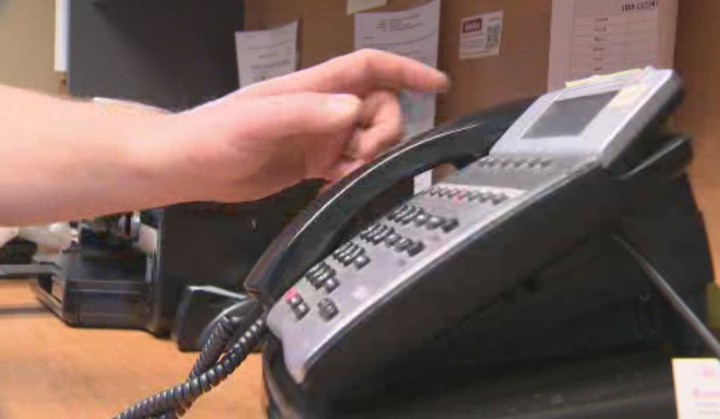With tax season looming, the Canada Revenue Agency is once again warning Canadians to be careful about giving out financial information to anyone they can’t verify is a CRA employee.

The so-called “CRA scams” began emerging in 2013, according to the RCMP, and have since become a popular tool for defrauding people over the phone or by email.
The most common scam is fairly straightforward. Someone claiming to be from the CRA calls and, in a conversation that starts out calmly enough, tells the victim that they have made an error on their tax return or neglected to file it. The phone number may seem legitimate to those with caller ID, police have warned. The fraudster then asks for financial or banking information in order to settle an alleged debt to the government.
READ MORE: CRA telephone scam making the rounds again
Any push-back from the victim is usually met with immediate threats of calling the police, sending CRA employees to the door, blacklisting a social insurance number, or jail time. The hope is that the caller will be frightened into complying.
Canadians are being reminded that the CRA may call them at home, but they will almost always receive a written notice of some kind before the phone call happens.
“During such phone calls, the CRA officer must validate your identity and therefore will ask for certain personal information, including your date of birth, your address, and in the case of a business some account specific details,” the agency’s latest release noted. “The CRA officials will act with professionalism and will not be aggressive or make threats.”
WATCH: New Brunswick resident calls CRA fraudster back
CRA scams tend to get worse right before, during and immediately after Canadians file their tax returns each spring. Fraudsters have also used legitimate-looking emails, sending a notice of a tax refund and then asking for personal information in order to collect the money.
Most tax returns must be filed on or before April 30, 2016.
Here are some other things the CRA will never do:
- Threaten you with immediate arrest or prison sentence.
- Ask for information about your passport, health card, or driver’s licence.
- Request personal information to be sent by email.
- Email you a link requesting you fill in an online form with personal or financial details.
- Send you a link to your refund by email or text message.
- Setup an in-person meeting in a public place to take a payment.
- Demand immediate payment by prepaid credit card.
And some things the CRA may do, in certain circumstances:
- Notify you by email when new mail is available for you to view in CRA secure portals such as My Account, My Business Account or Represent a Client.
- Email you a link to a CRA webpage, form, or publication in response if you call the CRA looking for that information.
- Send you a notice of assessment or re-assessment by mail, or notify you by email when it is available to view in CRA secure portals.
- Ask for financial information such as the name of your bank and its location.
- Request payment for a tax debt through any of the CRA’s payment options.
- Take legal action to recover the money you owe if you refuse to pay your debt.
If you suspect a scam, contact the Canadian Anti-Fraud Centre online at www.antifraudcentre.ca or toll free at 1-888-495-8501.


Comments